 Backend Development
Backend Development C#.Net Tutorial
C#.Net Tutorial What exactly is docker and why is it so popular? What are its advantages and disadvantages?
What exactly is docker and why is it so popular? What are its advantages and disadvantages?What is Docker?
To put it simply, Docker is a "container" (Linux containers, LXCs) that is run by a program written in the GO language; the cornerstone of current cloud services is operating system level isolation, which virtualizes multiple containers on the same physical server. host. Docker implements an application-level isolation; it changes our basic development and operation unit from directly operating the virtual host (VM) to a "container" where the operating program runs.
Docker is an open platform designed for developers and system administrators to publish and run distributed applications. Composed of two parts:
Docker Engine: a portable, lightweight runtime environment and package manager. (Note* Single OS vs single thread, is it particularly similar to NodeJS?)
Docker Hub: A cloud service created for creating automated workflows and sharing applications. (Note* Cloud image/package management vs npm package management, is it particularly similar to npm?)
From March 20, 2013, the first version of Docker was officially released to June 2014, when Docker 1.0 was officially released. Experience for 15 months. Although its development history is very short, Docker is becoming more and more popular.
In fact, Container technology is not an innovation of Docker. Cloud service providers such as HeroKu and NodeJitsu have adopted similar lightweight virtualization technology. However, Docker is the first to open source this Container technology on a large scale and is widely accepted by the community. of.
The good part
The advantages of Docker over VM virtual machines are very obvious, that is, lightweight, high performance and convenience. The following part is excerpted from: KVM and Docker LXC Benchmarking with OpenStack
Fast
Runtime Performance can be greatly improved (the classic case is an improvement of 97%)
Management operations (start, stop, start, restart, etc.) are all measured in seconds or milliseconds.
Agile
As agile as a virtual machine, and cheaper, deployment on bare metal is as easy as clicking a button.
Flexible
“Containerize” applications and systems without adding additional operating systems,
Lightweight
You will have enough “operating systems”, just add or reduce images. 100~1000 Containers containers can be deployed on a server.
Cheap
Open source, free and low-cost. Supported and driven by the modern Linux kernel. Note* Lightweight Container can certainly open more "containers" on a physical machine, and is destined to be cheaper than VMs.
Ecosystems
are becoming more and more popular, just look at Google Trends, docker or LXC.
There are countless community and third-party applications.
Cloud Support
Countless cloud services provide frameworks for creating and managing Linux containers.
Regarding the performance advantages of Docker, you can also refer to this IBM engineer’s evaluation of performance improvement. It is greatly improved compared to VMs (OS system level virtualization) in all aspects.
Performance Characteristics of VMs vs Docker Containers by Boden Russel (IBM)
Performance characteristics of traditional v ms vs docker containers
The controversial part
Any project will have arguments, just like Go, like NodeJS, and Docker also has it Some.
Can it be completely isolated?
In a super complex business system, can a single OS achieve complete isolation? Will the crash/memory overflow/high CPU usage of one program affect other containers or the entire system? Many people are still skeptical about whether Docker can support mission-critical systems in an actual multi-host production environment. Note* Just like some people question that Node.JS single thread is fast and unstable and cannot be applied in complex scenarios.
But the good news is that the Linux kernel has made many improvements to Container to support better isolation.
GO language is not yet fully mature
Docker is developed by Go language, but GO language is relatively unfamiliar to most developers, and it is still improving, and it is still some time away from maturity. This half-git, half-package management approach makes some people uncomfortable.
Controlled by a private company
Docker was designed by a private company called Dotcloud. The companies are all for-profit. For example, you cannot use the source code to compile the Docker project. You can only use the Docker binary distribution package compiled by the black box. , the future may not be completely free. At present, Docker has launched enterprise-level services (consulting, support and training) for companies.
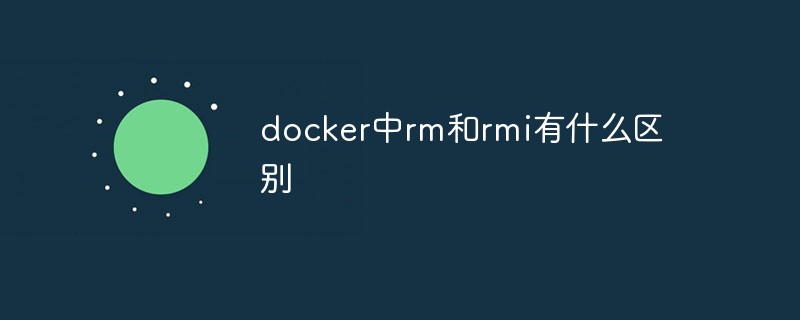 docker中rm和rmi有什么区别Jul 14, 2022 am 11:02 AM
docker中rm和rmi有什么区别Jul 14, 2022 am 11:02 AMdocker中rm和rmi的区别:rm命令用于删除一个或者多个容器,而rmi命令用于删除一个或者多个镜像;rm命令的语法为“docker rm [OPTIONS] CONTAINER [CONTAINER...]”,rmi命令的语法为“docker rmi [OPTIONS] IMAGE [IMAGE...]”。
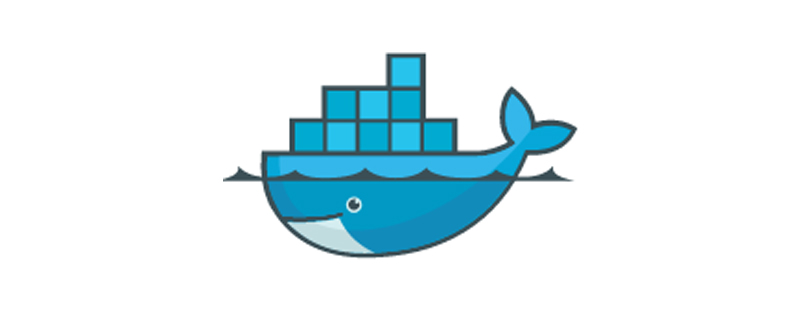 docker官方镜像有哪些May 12, 2022 pm 02:23 PM
docker官方镜像有哪些May 12, 2022 pm 02:23 PMdocker官方镜像有:1、nginx,一个高性能的HTTP和反向代理服务;2、alpine,一个面向安全应用的轻量级Linux发行版;3、busybox,一个集成了三百多个常用Linux命令和工具的软件;4、ubuntu;5、PHP等等。
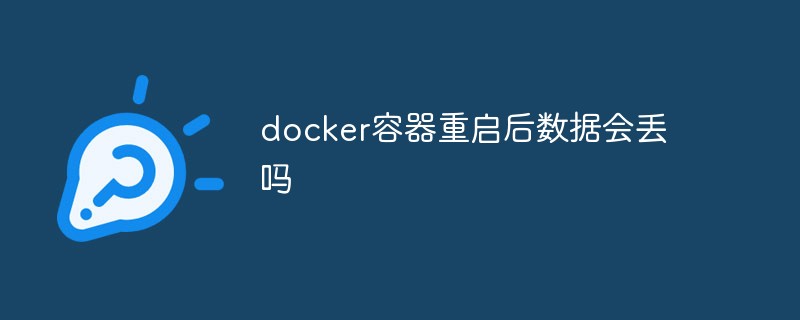 docker容器重启后数据会丢吗Jun 17, 2022 am 10:41 AM
docker容器重启后数据会丢吗Jun 17, 2022 am 10:41 AMdocker容器重启后数据会丢失的;但是可以利用volume或者“data container”来实现数据持久化,在容器关闭之后可以利用“-v”或者“–volumes-from”重新使用以前的数据,docker也可挂载宿主机磁盘目录,用来永久存储数据。
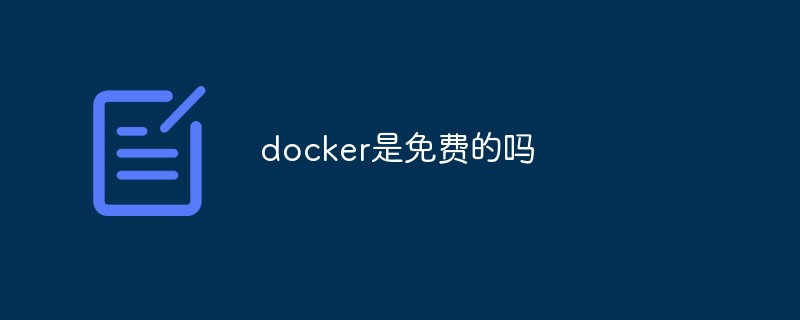 docker是免费的吗Jul 08, 2022 am 11:21 AM
docker是免费的吗Jul 08, 2022 am 11:21 AMdocker对于小型企业、个人、教育和非商业开源项目来说是免费的;2021年8月31日,docker宣布“Docker Desktop”将转变“Docker Personal”,将只免费提供给小型企业、个人、教育和非商业开源项目使用,对于其他用例则需要付费订阅。
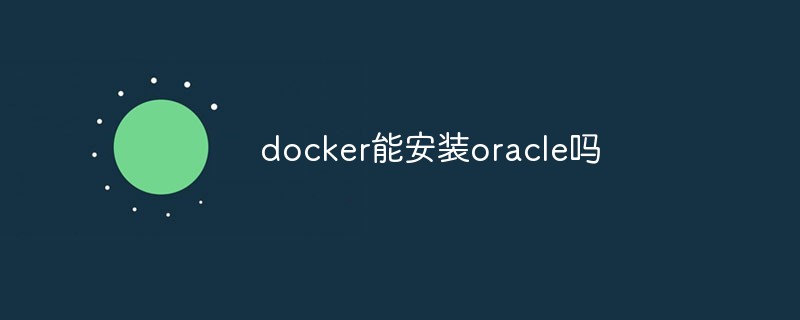 docker能安装oracle吗Jul 08, 2022 pm 04:07 PM
docker能安装oracle吗Jul 08, 2022 pm 04:07 PMdocker能安装oracle。安装方法:1、拉取Oracle官方镜像,可以利用“docker images”查看镜像;2、启动容器后利用“docker exec -it oracle11g bash”进入容器,并且编辑环境变量;3、利用“sqlplus /nolog”进入oracle命令行即可。
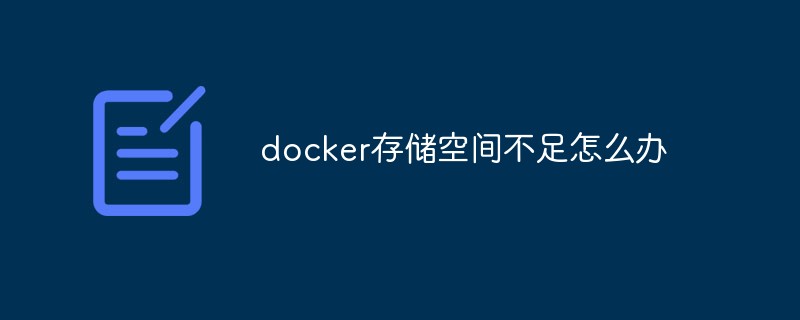 docker存储空间不足怎么办Jul 22, 2022 pm 03:44 PM
docker存储空间不足怎么办Jul 22, 2022 pm 03:44 PM解决方法:1、停止docker服务后,利用“rsync -avz /var/lib/docker 大磁盘目录/docker/lib/”将docker迁移到大容量磁盘中;2、编辑“/etc/docker/daemon.json”添加指定参数,将docker的目录迁移绑定;3、重载和重启docker服务即可。
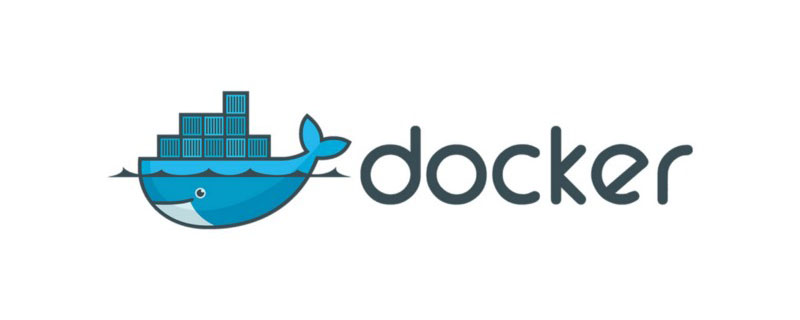 docker容器管理ui有哪些May 11, 2022 pm 03:39 PM
docker容器管理ui有哪些May 11, 2022 pm 03:39 PM容器管理ui工具有:1、Portainer,是一个轻量级的基于Web的Docker管理GUI;2、Kitematic,是一个GUI工具,可以更快速、更简单的运行容器;3、LazyDocker,基于终端的一个可视化查询工具;4、DockStation,一款桌面应用程序;5、Docker Desktop,能为Docker设置资源限制,比如内存,CPU,磁盘镜像大小;6、Docui。
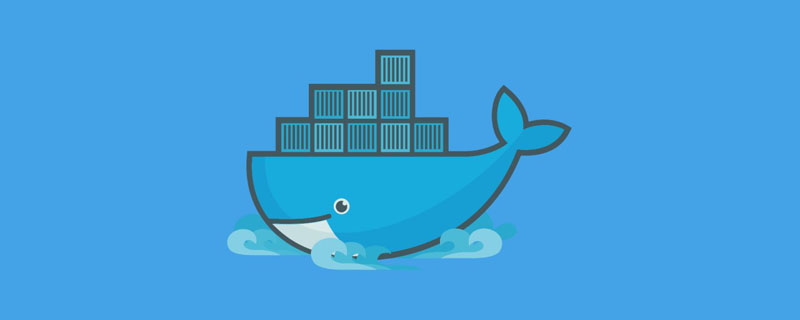 什么是docker最早支持的存储引擎May 12, 2022 pm 03:27 PM
什么是docker最早支持的存储引擎May 12, 2022 pm 03:27 PMAUFS是docker最早支持的存储引擎。AUFS是一种Union File System,是文件级的存储驱动,是Docker早期用的存储驱动,是Docker18.06版本之前,Ubuntu14.04版本前推荐的,支持xfs、ext4文件。


Hot AI Tools

Undresser.AI Undress
AI-powered app for creating realistic nude photos

AI Clothes Remover
Online AI tool for removing clothes from photos.

Undress AI Tool
Undress images for free

Clothoff.io
AI clothes remover

AI Hentai Generator
Generate AI Hentai for free.

Hot Article

Hot Tools

Dreamweaver Mac version
Visual web development tools

VSCode Windows 64-bit Download
A free and powerful IDE editor launched by Microsoft

MinGW - Minimalist GNU for Windows
This project is in the process of being migrated to osdn.net/projects/mingw, you can continue to follow us there. MinGW: A native Windows port of the GNU Compiler Collection (GCC), freely distributable import libraries and header files for building native Windows applications; includes extensions to the MSVC runtime to support C99 functionality. All MinGW software can run on 64-bit Windows platforms.

PhpStorm Mac version
The latest (2018.2.1) professional PHP integrated development tool

SAP NetWeaver Server Adapter for Eclipse
Integrate Eclipse with SAP NetWeaver application server.





